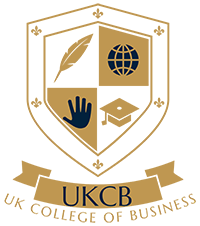Next review Date: 01/01/2023
1. Introduction
The importance of students demonstrating that they have submitted their own work. Any work submitted by students for formal assessment as part of their academic studies must be their own work. Where it incorporates material from other authors the reference to these authors should be clear and unambiguous.
It is therefore essential that:
* Quotations from published and unpublished sources are indicated and acknowledged clearly;
* Web-based materials should not be directly downloaded into an assignment and should be referenced fully like any other source material;
* Students must not incorporate materials/assignments purchased or acquired from internet sites or Commissioned from sources which write assignments for payment (paper-mill sites);
* Paraphrasing of material from others must be referenced clearly;
* Students should not normally incorporate materials previously submitted at this or any otherInstitution towards the completion of an award. However, if inclusion of previous work is permittedafter discussion with tutors it should be referenced fully;
* Sources of illustrations, photographs maps and statistics are acknowledged clearly;
* Unless students have been instructed to produce a group assignment, students must produce workwhich is uniquely their own;
* Where work is done as part of a group the submission sheet should include a list of all students whohave contributed to this work;
* Students should be referred to appropriate sources of information on plagiarism and good practice in the production of assignments. (If the amount of material so presented is very minor, tutors will deal with it as an occurrence of poor academic practice, which will naturally be reflected in the mark, but it, will not be treated as plagiarism under this Policy).
2. What is Plagiarism?
UK College of Business defines plagiarism as: The use, intentional or otherwise, of material whose source is not acknowledged; and/or the direct use of material, referenced or un-referenced, without a clear indication that the material is taken verbatim from its source. Within this definition, the College differentiates between initial plagiarism and repeated plagiarism.
3. What are initial Plagiarism and Repeated Plagiarism?
Initial plagiarism normally refers to cases where a student is dealt with through these procedures for the first time. Cases should also be treated as “initial plagiarism” if the student has previously plagiarised earlier case(s) had not yet been made known to the student.
Repeated plagiarism refers to cases where a student who has already been dealt with through these procedures is found to have plagiarised on a later occasion. Cases of multiple plagiarisms in assessments submitted at the same time will be treated as “initial plagiarism” unless, before submitting any of these assessments, the student had plagiarised on a previous occasion and had been advised that action under these procedures had been initiated.
4.1 The Role of the Principal
The Principal is responsible for implementing the college’s plagiarism procedures across all levels. Teachers drawn from different departments are selected who have relevant academic knowledge and sufficient overview of plagiarism issues to enable the procedures to be applied consistently across all the courses of study.
4.2 Remedial action
Where students are judged to have plagiarised, they will normally be directed to additional support materials dealing with plagiarism, academic referencing etc.
4.3 Records
When a student graduates, the record of their plagiarism is deleted, and not passed on to other institutions. This will normally be the case also if they leave college without graduating but, where their studies have been terminated for repeated plagiarism, college reserves the right to make this known to other institutions of Higher Education.
4.4 Reporting & Penalties
The tutor who detects plagiarism contacts the Academic Head and provides them with the piece of work and the evidence of plagiarism. The Academic Head on exception may advise the tutor that the incident is so minor that it is best be dealt with as poor academic referencing. If the Academic Head agrees that the incident falls within the remit of this Policy, the Academic Head then issues a warning to the student, and the appropriate penalty is applied as follows:
* During the normal course of the year, if the plagiarism is the first case, the student is given the opportunity to re-submit the assignment within a reasonable timescale, having addressed the issues and made the necessary amendments. The re-submitted work is marked on a bare pass or fail basis.
* If the case is the second or subsequent case the students work will be reviewed by the Principal, Internal Verifier and Academic to determine what further action is necessary. In extreme cases this may include expulsion.
The case is reviewed by the Principal in accordance with the normal practice for review of work. Appeals against the decision of the Academic Head may be made to the Principal. The Principal keeps a record of the incident.
